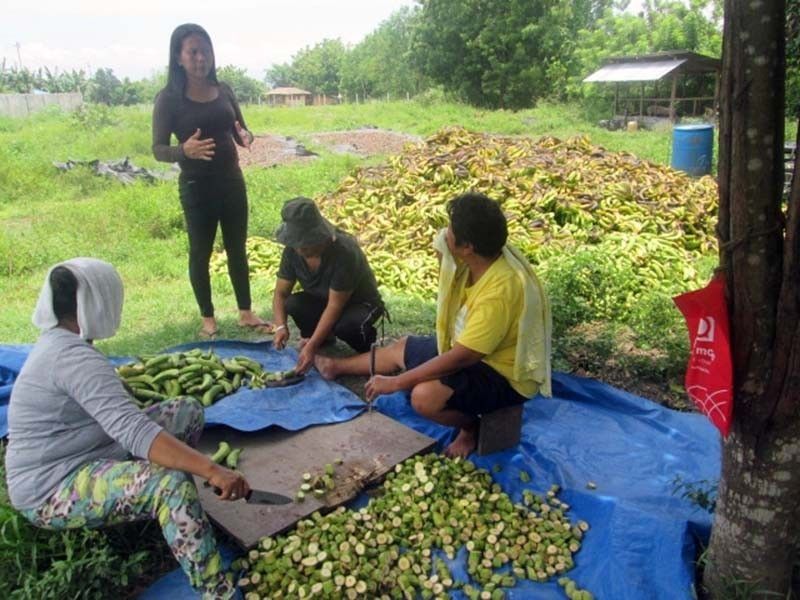UN rights chief raises anti-terror bill's 'chilling effect' on humanitarian work

MANILA, Philippines (Updated 9:24 p.m.) —United Nations rights chief Michelle Bachelet called on President Rodrigo Duterte to veto the controversial anti-terrorism bill citing a possible “chilling effect” on humanitarian work in the country.
“The recent passage of the new Anti-Terrorism Act heightens our concerns about the blurring of important distinctions between criticism, criminality and terrorism,” she said Tuesday.
Bachelet formally presented her office’s report on the situation in the Philippines to the UN Human Rights Council during its 44th session.
RELATED: Philippines to UN rights council: Panel to look into deaths in anti-drug operations
Bachelet said that the proposed new anti-terrorism law “could have a further chilling effect on human rights and humanitarian work, hindering support to vulnerable communities.”
The anti-terrorism bill reached Duterte’s desk on June 9. If the president does not veto the proposed measure, which he marked as urgent but later subjected to his legal team’s review, it will lapse into law on July 9.
The UN official echoed the call of several human rights’ and lawyers’ groups on the looming new law as they cited provisions of the bill that are unconstitutional and prone to abuse.
Local groups raised the “vague” and “overbroad” definition of terrorism under the proposed law. They pointed out that while it “in essence” does not stop dissent and criticism against the government, the same section of the law states that this only applies if those activities “are not intended to cause death or serious physical harm to a person, to endanger a person’s life, or to create a serious risk to public safety.”
RELATED: Belgian NGO: ALCADEV funding for growing greens, not raising Reds | Another Belgian NGO defends partners tagged as rebel fronts
Bachelet urged Duterte to refrain from signing it into law and instead “initiate a broad-based consultation process to draft legislation that can effectively prevent and counter violent extremism—but which contains some safeguards to prevent its misuse against people engaged in peaceful criticism and advocacy.”
The UN rights chair said her office is ready to assist in the review of the bill.
RELATED: 'We are a humanitarian organization,' Oxfam stresses after AFP labels them terrorist front
UN member-states also raised the alarm on the shutdown of broadcast giant ABS-CBN and the “continued prosecution” of Rappler CEO and veteran journalist Maria Ressa and former researcher Reynaldo Santos Jr. for cyber libel.
Bachelet in her report also said the Philippine government’s war on drugs resulted in serious human rights violations, including “widespread and systematic” extrajudicial killings.
Bachelet: UN closely watching ABS-CBN situation, case vs Ressa
UN member-states also raised alarm over the shutdown of broadcast giant ABS-CBN and the “continued prosecution” of Rappler CEO and veteran journalist Maria Ressa and former Rappler researcher Reynaldo Santos Jr. for cyber libel.
In her concluding remarks, Bachelet stressed that people need freedom of expression and of the press, as well as human rights defenders in a democracy.
She added that her office is following the cases of ABS-CBN and Ressa “closely, with grave concern given the deep unease” among journalists in the Philippines.
Manila Regional Trial Court Branch 46 convicted Ressa and Santos on cyber libel charges and sentenced them to the indeterminate penalty of imprisonment ranging from six months and one day of prision correccional as minimum to six years of prision correccional as maximum.
Bachelet said that the cyber libel conviction of Ressa raised many concerns including the use of anti-cybercrime law and the 12 years prescription period. She added that there is also fear that the case is politically motivated and is a retaliation of Rappler’s critical coverage of the government.
She added that human rights standards do not recommend imprisonment as punishment for defamation and call for decriminalization of libel.
UN Special Rapporteur on the Right of Freedom of Opinion and Expression David Kaye raised this in a brief of amici curiae (friend of court) he submitted to the Manila court handling Ressa’s case.
The court, however, merely noted Kaye’s briefer. — with reports from Gaea Katreena Cabico
Related video:
- Latest
- Trending





























